- London bus collides with Southwark Playhouse, causing multiple injuries
- Jesse Jackson, Civil Rights Leader, Dies at 84: Tributes Pour In
- Julian Alvarez makes decision over Arsenal, Chelsea and Man Utd transfer
- Kim Jong Un’s Daughter May Encounter Deadly Succession Battle with Ruthless Aunt
- US Ambassador to EU Puzder Praises Rubio’s Call for EU Alignment at Munich
- New regulations introduced for London pedicabs – what do they entail?
- Canadian Finance Minister François-Philippe Champagne attends Eurozone meeting
- Romania’s Finance Minister Nazare Supports EU Two-Speed Union Proposals
Can the rich really be the world’s problem and solution?
Climate crisis, Cop26 and the wealthy. The screaming hypocrisy of the rich.
Cop26 has officially started with the UK hosting the summit aimed at bringing climate change under control. The meeting will last until 12 November and could change our everyday lives.
But the climate summit has already suffered backlash and has had its fair share of blunders. Many of the world leaders, celebrities, business owners that have descended on Glasgow turned up in private jets and led to calls of hypocrisy. “Jeff Bezos facing backlash for flying to Cop26 in private jet to lecture people on climate crisis,” said one headline.
It has long been known that the world’s richest are fuelling the climate crisis and despite the pledges, can the rich really be the world’s problem and solution?
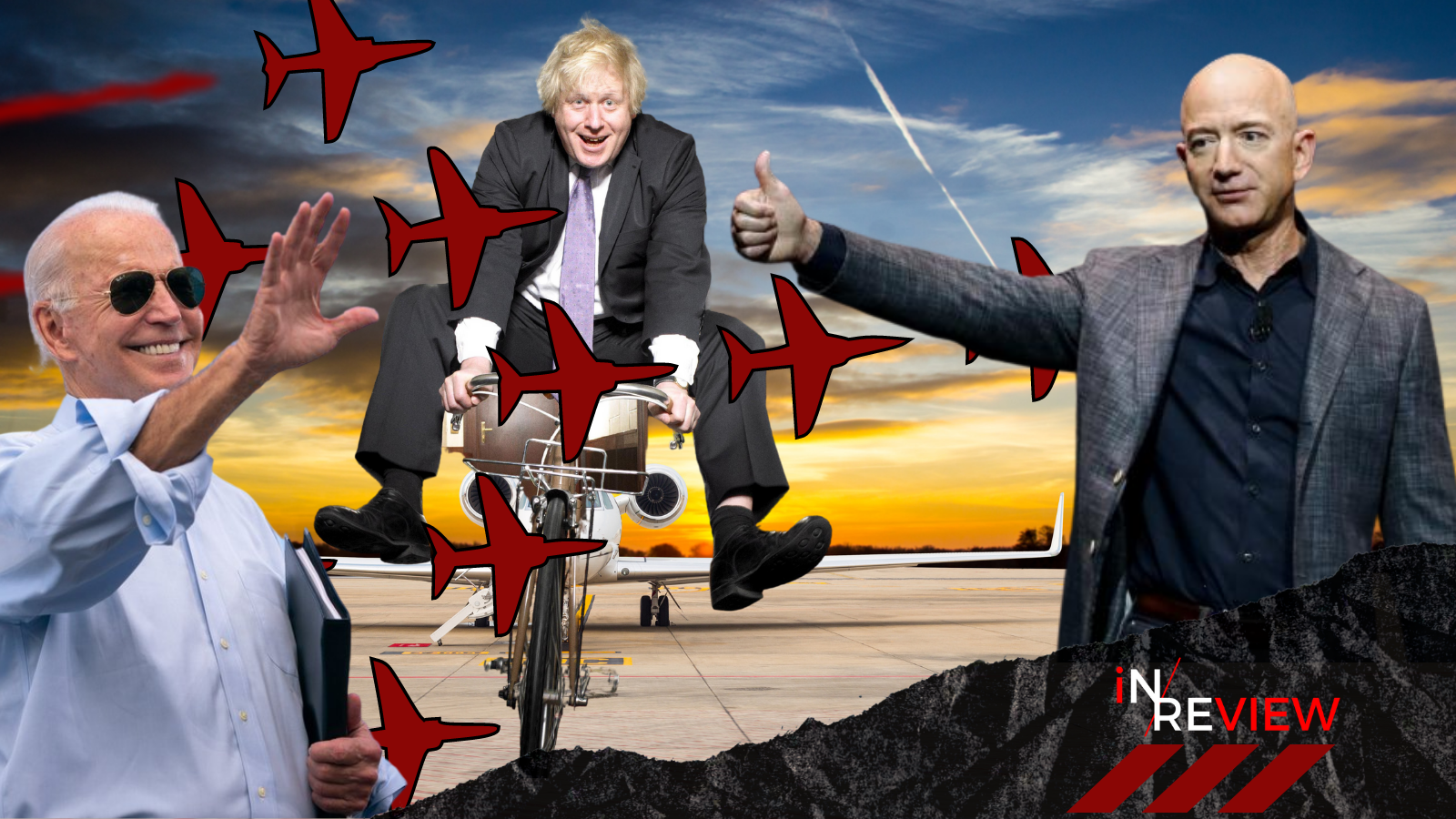

"Lifestyles don't exist in a vacuum, lifestyles are shaped by context."
How the rich are driving climate change
BBC News says the world’s wealthiest people make a huge contribution to climate change through carbon-hungry activities. How can we reduce emissions from the rich?
One of those carbon-hungry forms of consumption from the ultra-wealthy is flying. The rich are known to travel the world regularly and clock up a heck of a lot of mileage compared to the rest of the population.
Climate advocate Bill Gates took 59 flights in 2017, according to Stefan Gössling’s calculations, covering a distance of around 213,000 miles – more than eight times around the world – generating more than 1,600 tonnes of greenhouse gases (that’s equivalent to the average yearly emissions of 105 Americans).
“The bigger your carbon footprint, the bigger your moral duty,” Greta Thunberg
The article says the last few decades have “shone a spotlight on global inequality.” And the disruptive events such as the pandemic and the impacts of climate change tend to hit the poor the hardest.
When debating how to solve inequality, over-consumption is often overlooked, writes the article.
The statistics are startling. The world’s wealthiest 10% were responsible for around half of the global emissions in 2015, according to a 2020 report from Oxfam and the Stockholm Environment Institute. The top 1% were responsible for 15% of emissions, nearly twice as much as the world’s poorest 50%, who were responsible for just 7% and will feel the brunt of climate impacts despite bearing the least responsibility for causing them.
The article says personal consumption is a “thorny topic” and leads to the debate on who should tackle climate change. Is it down to individual actions or systemic changes from governments and corporations?
Expert Lewis Akenji argues people live within the mostly unsustainable political and economic systems that exist. “This is a false dichotomy,” says Akenji. “Lifestyles don’t exist in a vacuum, lifestyles are shaped by context.” But to address climate change we still need to address the lifestyles of the rich and the power they hold.
“Wealthy people set the tone on consumption to which everybody aspires. That’s where the toxic effects are,” says Halina Szejnwald Brown.
SUVs are symbolic of fame and wealth and have become popular amongst middle-class families in cities as a status symbol despite their environmental impact. In 2019, SUVs made up 42% of global car sales and were the only sector to see emissions rise
Another issue is large homes. “Housing choices signify prestige and social status,” writes sustainability scientist Kimberly Nichola. In Europe, nearly 11% of emissions from housing came from the top 1% of emitters who own large – and often multiple – homes.
Read the full article, How the rich are driving climate change, by Laura Paddison on BBC
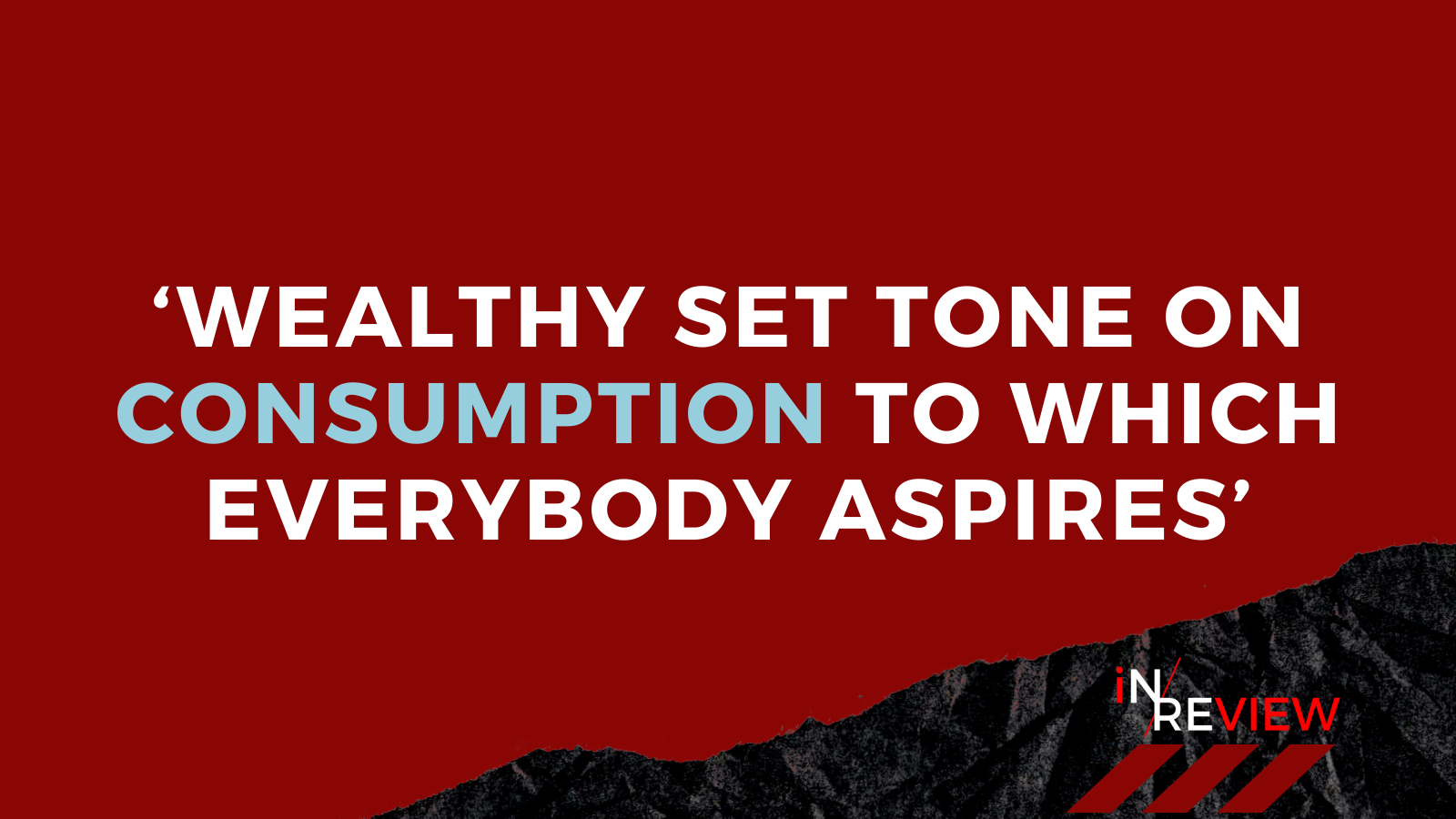
What we know so far after Air India flight to London Gatwick crashes
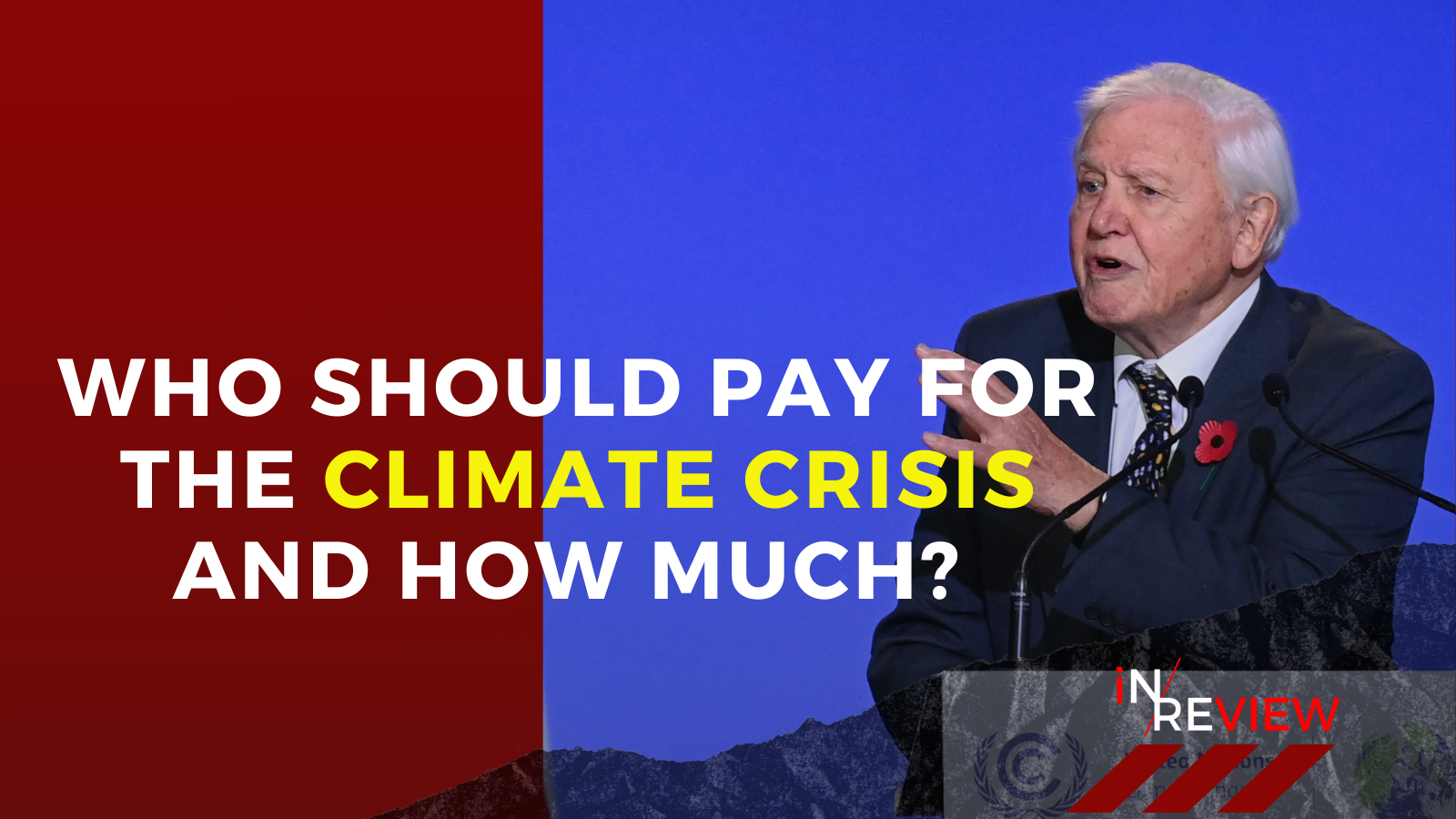
The LMDC wants advanced economies to zero out emissions before 2050
Who should pay for the climate catastrophe?
Wbur says the climate crisis is set to worsen if there is no radical transformation of global energy systems. They say the COP26 summit is set to draft the next phase of the international climate strategy.
The leaders, from 192 countries, are attempting to set a course for net-zero carbon emissions by 2050 and “crucially, seeking an equitable array of financial flows between nations that will accelerate the shift to renewable energy and limit the impacts of the warming climate.”
The article says the “conference is not a meeting of equals.” Since the Rio Earth Summit in 1992, stark disparities in wealth, infrastructure and technical know-how between the developed and developing nations have been acknowledged in international climate agreements.
The “gross imbalance” in the amounts of greenhouse gas that nations produce has also been recognised. The industrialised global north is mainly responsible for carbon pollution, where per capita emissions are sharply higher.
“If measured from the beginning of a calendar year, the carbon emissions of an average American surpass the yearly emissions of a typical Bangladeshi on January 13”.
The US and China are the top two with the largest share of cumulative emissions that are correlated with the rise in global temperatures since the dawn of the industrial era. The US is in first place and though China is gaining fast, it’s still a distant second.
But at the other end of the spectrum there are nations who are most threatened by the effects of climate change, including the small island states, despite making little contributions to global warming.
Therefore the “one-size-fits-all policy” is problematic. The article says a “demand for all countries to adopt a plan to achieve net-zero carbon emissions by 2050” angered members of the “Like-Minded Developing Countries” group. The group is made up of developing countries of various sizes and they say the request was “against climate justice.”
The LMDC wants advanced economies to zero out emissions before 2050 and allow more of the global remaining carbon budget to be allocated to developing countries.
Climate finance will be a central issue at COP26 and will be asking who should pay and how much.
“For example, the developed nations pledged in 2009 to mobilize $100 billion annually in grants and loans by 2020, but they fell short of that goal by about $20 billion. Negotiators are working on the details of new financing mechanisms in Glasgow, aiming to avoid similar trust-eroding failures in the future.”
Joe Biden has pledged $3 billion per year commitment to his new President’s Emergency Resilience and Adaptation Plan – a massive step in supporting developing nations. But it fails to address a third area where aid is needed, known as “loss and damage.”
This category includes extreme weather events and slow-onset phenomena such as sea-level riser, ocean acidification, loss of biodiversity and desertification. The burden of climate-related damages on developing nations means it’s harder to implement their decarbonisation plans.
“As the effects of climate change intensify, their needs will grow exponentially. But the developed countries have rejected the premise that they bear an obligation to provide compensation for these losses.
“The notion that a country like the U.S. would be indebted to a relatively impoverished nation like Bangladesh runs counter to the historical norm of developed countries being the creditors in international finance. The moral calculus of climate debt inverts the conventional model of relations between rich and emerging nations.”
Read the full story, Who should pay for the climate catastrophe? By Frederick Hewett on wbur.
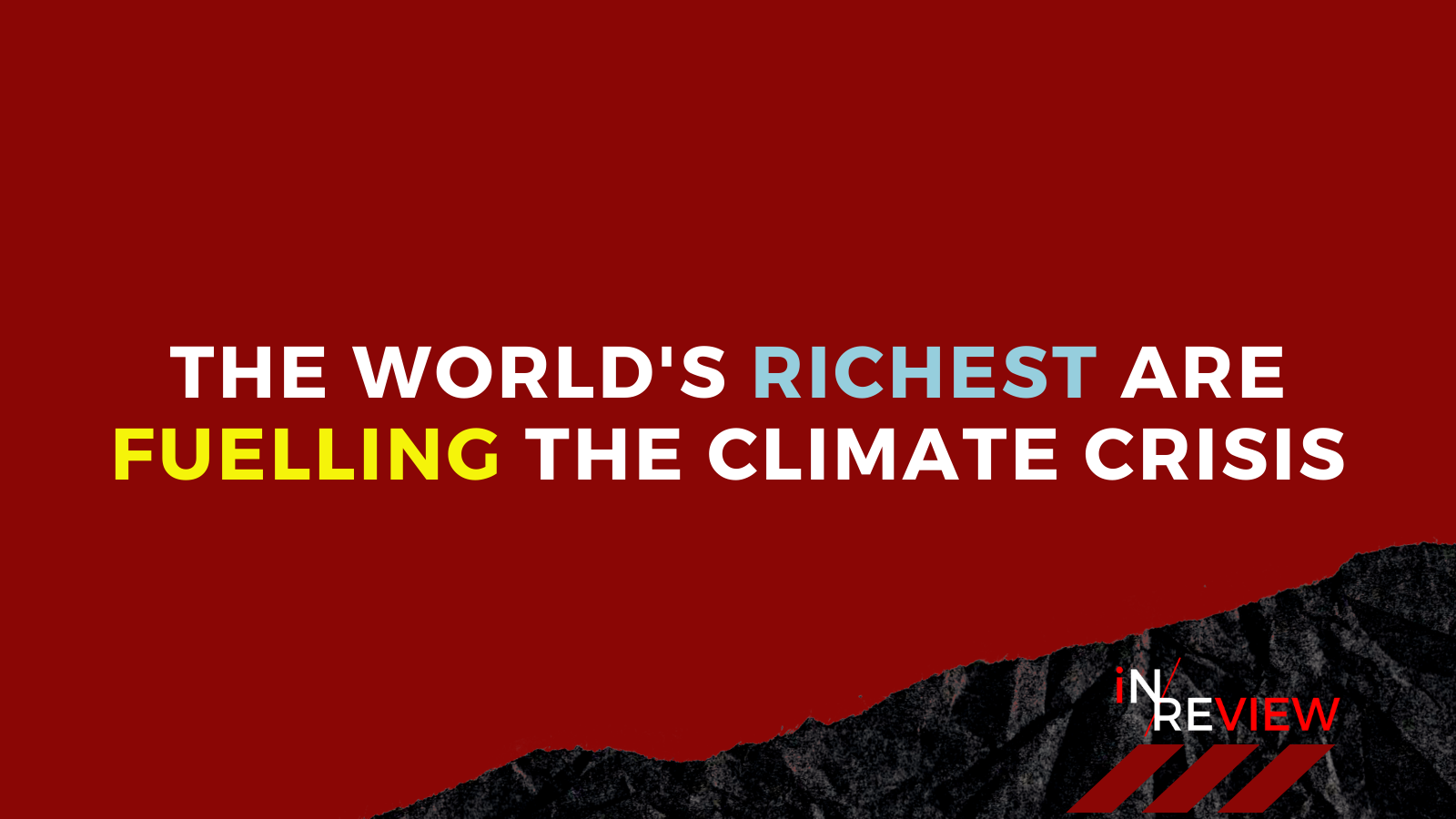
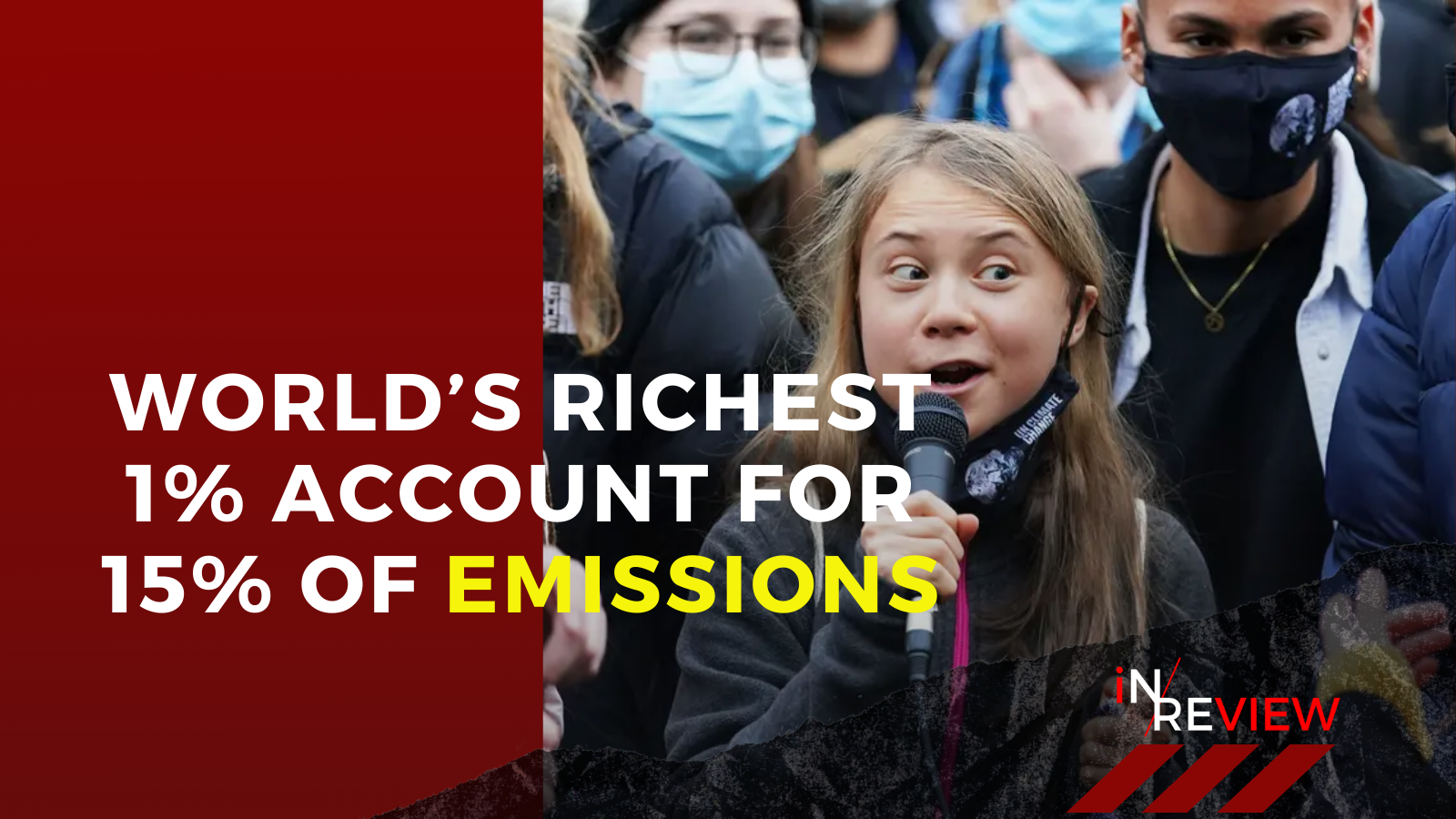
The world’s richest have never been richer “and their carbon footprints have expanded as a consequence
What the world’s richest people are doing to fight Climate Change
FORBES looks at the world’s richest people and investigates what they are doing to fight climate change.
The article says the worlds richest have never been richer “and their carbon footprints have expanded as a consequence.” Some of the richest are trying to fight climate change, others are not.
A recent UN report found that the richest 1% of the world population account for 15% of emissions. “The wealthy bear the greatest responsibility in this area,” the report found, referring to changes in consumer behavior prioritizing low-carbon consumption. “This elite will need to reduce their footprint by a factor of 30 to stay in line with the Paris Agreement targets,” it added.
Looking at the top 10 wealthiest individuals in the world, Forbes discovers what they are doing to fight climate change through either personal or corporate influence.
The article says “it’s a mixed picture”. They say Jeff Bezos (the worlds richest) has made big pledges ($10 billion to fight climate change and billions of dollars to be spent by Amazon to reduce its carbon footprint.). Bezos has only recently joined the climate conversation whilst Bill Gates is “heavily engaged in the topic”. Tesla’s Elon Musk arguably “spurred many other automakers to start making electric cars and is well known for his statements on climate change.” Warren Buffett remains opposed to climate risk disclosure at Berkshire Hathaway.
Several businesses of the world’s richest have signed on to the Science-Based Targets initiative (SBTi) – a coalition of international organisations such as the UN Global Compass that supports and independently assesses business commitments to set net-zero carbon targets. It is predicted that meeting such targets would prevent a global temperature increase of more than 1.5C.
They have set two deadlines, including halving greenhouse gas emissions by 2030, followed by net-zero carbon emissions by 2050. Companies have two years to submit their targets once they commit to the SBTi.
These billionaires’ other investments, philanthropic initiatives and personal opinions complete the picture of what their commitments to sustainability and a carbon-neutral future look like.
Read the full article, What The World’s Richest People Are Doing To Fight Climate Change, by Forbes

Deep Dive
The energy intensive goods and services rich people like
Ten Hypocritical Moments Surrounding Glasgow Cop26 Climate Change Summit
Climate change: The rich are to blame, international study finds
Who should pay for the climate catastrophe?
How the rich are driving climate change
Rich People Are Fueling the Climate Crisis – and Not Just by Their Consumption
The ‘1%’ are the main drivers of climate change, but it hits the poor the hardest: Oxfam report
What The World’s Richest People Are Doing To Fight Climate Change
Jeff Bezos facing backlash for flying to Cop26 in private jet to lecture people on climate crisis
Quick Facts
What COP26 means?
Conference of the Parties
What will COP26 do?
Why is COP26 so important?

Subscribe to Updates
Get the latest creative news from FooBar about art, design and business.



